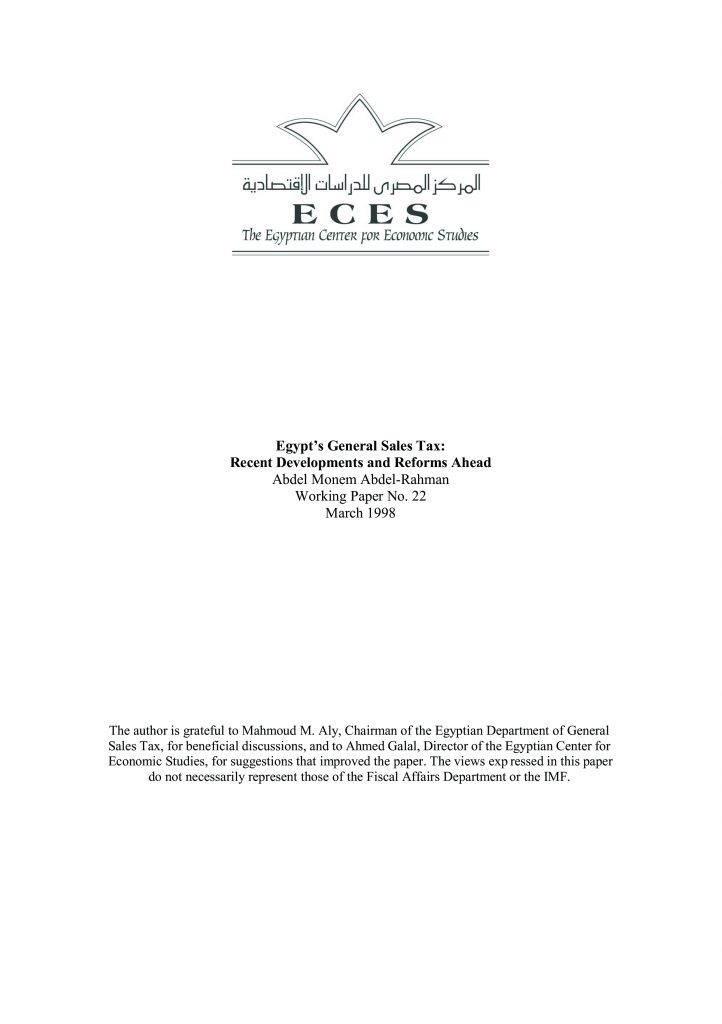Abstract:
This paper analyzes the Egyptian General Sales Tax (GST) which has registered a high buoyancy over the last six years, while income taxes on individuals are showing declining buoyancy despite progressive rates. This paper recommends replacing the GST with a value-added tax (VAT) to increase efficiency and revenue productivity. The GST must be reformed by broadening the aggregate base through taxation of all goods and services, generalizing the tax credit to cover tax paid earlier, adjusting the threshold to reflect the administration’s ability to cope with increased taxpayers, rationalizing the rate structure, and replacing the positive list of taxable services with a negative list of specified exemptions. Replacing the GST with a VAT should not increase the administrative burden. The tax burden is not expected to be adversely affected, because it is independent of the number of stages at which the VAT may be levied. In addition, the VAT, as a tax on income expended, or rather on consumption of goods and services, can be considered a norm of the ability to pay.

